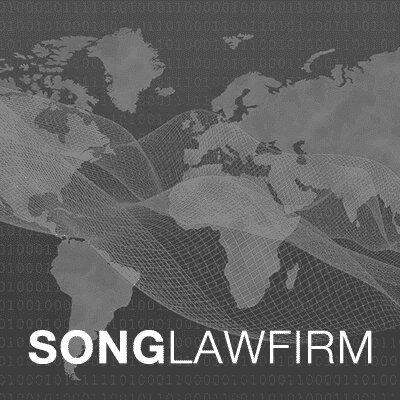Best Dependent Visa Lawyers in United States
Share your needs with us, get contacted by law firms.
Free. Takes 2 min.
Or refine your search by selecting a city:
List of the best lawyers in United States
About Dependent Visa Law in United States
The Dependent Visa in the United States allows family members of individuals holding specific types of visas, such as work or student visas, to reside in the country alongside the primary visa holder. Common examples include the H-4 visa for dependents of H-1B visa holders and the F-2 visa for dependents of F-1 student visa holders. These visas typically allow spouses and, in some cases, children under the age of 21 to accompany the principal visa holder during their stay in the U.S. While certain privileges, such as the ability to work, vary by visa type, the primary purpose is to keep families united during extended periods spent away from their home countries.
Why You May Need a Lawyer
Seeking legal advice for a Dependent Visa can be crucial for several reasons:
- Complex Application Processes: Understanding visa requirements and compiling necessary documentation can be challenging without expert guidance.
- Changing Immigration Laws: Frequent changes in immigration policies may impact eligibility or processing times, requiring updated legal insight.
- Employment Restrictions: Many dependent visas have specific restrictions on work rights, necessitating legal advice for compliance and potential work authorization options.
- Denials or Delays: If a visa application is denied or delayed, legal expertise may be needed to navigate appeals or resolve issues.
Local Laws Overview
Key aspects of local laws related to Dependent Visa in the United States include:
- Eligibility Criteria: Specific requirements must be met for dependents to qualify for a visa, including proof of relationship to the principal visa holder and valid visa status of the principal.
- Rights and Restrictions: Dependent visa holders may have limitations on work and study, which can vary by visa category.
- Application Process: Submitting forms like the I-539 (Application to Extend/Change Nonimmigrant Status) and supporting documents to the U.S. Citizenship and Immigration Services (USCIS) is a common requirement.
- Transition to Independent Visa Status: Options may exist for dependents to transition to their own visa types if they meet specific criteria through employment or study.
Frequently Asked Questions
What is a Dependent Visa?
A Dependent Visa allows family members of certain visa holders in the U.S. to reside in the country legally.
Who is eligible for a Dependent Visa?
Typically, spouses and unmarried children under the age of 21 of the principal visa holder are eligible for a Dependent Visa.
Can Dependent Visa holders work in the U.S.?
Work authorization varies by visa type. For example, H-4 visa holders can work only if they meet certain conditions, while other dependents like F-2 visa holders are generally not permitted to work.
Can children on a Dependent Visa attend school in the U.S.?
Yes, dependent children can attend school in the U.S., although post-secondary education might require additional authorization.
How long can I stay in the U.S. on a Dependent Visa?
The duration of stay is typically tied to the validity of the principal visa holder's status.
Can I apply for a Dependent Visa within the U.S.?
If you are already in the U.S., you may file to change your status to a Dependent Visa; otherwise, you may apply from abroad.
What documents are required for a Dependent Visa application?
Common documents include proof of relationship (marriage/birth certificates), a copy of the primary visa holder’s passport, and financial stability proofs.
Is there an age limit for children on Dependent Visas?
Yes, children must ordinarily be under the age of 21 years and unmarried to qualify as dependents.
Can I travel in and out of the U.S. on a Dependent Visa?
Yes, dependent visa holders can travel, but they must ensure their visa is valid or obtain a new visa if needed before re-entry.
How do I transition from a Dependent Visa to another visa category?
Depending on individual eligibility, you may apply for a new visa category like an H-1B for work or a shift to full student status via an F-1 visa through proper channels and documentation.
Additional Resources
For more information on Dependent Visas, consider reaching out to these resources:
- U.S. Citizenship and Immigration Services (USCIS): Comprehensive source for visa-related guidelines and forms.
- Department of State: Offers Consular Affairs information affecting visa issuance and renewals overseas.
- National Immigration Law Center: Provides legal resources and guidance on immigrant rights and policy changes.
- American Immigration Lawyers Association (AILA): Offers referrals and insights into immigration law and attorney services.
Next Steps
If you require legal assistance for a Dependent Visa:
- Consult with an Immigration Attorney: Seek advice from a licensed attorney specializing in immigration to discuss your specific case and options.
- Gather Necessary Documentation: Compile all required documents such as identity proofs, relationship certificates, and existing visa information.
- Stay Informed: Keep abreast of any changes to immigration laws or policies that may affect your visa status or eligibility.
- Contact Relevant Authorities: Reach out to USCIS or a U.S. consulate or embassy for official advice and application procedures.
Lawzana helps you find the best lawyers and law firms in United States through a curated and pre-screened list of qualified legal professionals. Our platform offers rankings and detailed profiles of attorneys and law firms, allowing you to compare based on practice areas, including Dependent Visa, experience, and client feedback.
Each profile includes a description of the firm's areas of practice, client reviews, team members and partners, year of establishment, spoken languages, office locations, contact information, social media presence, and any published articles or resources. Most firms on our platform speak English and are experienced in both local and international legal matters.
Get a quote from top-rated law firms in United States — quickly, securely, and without unnecessary hassle.
Disclaimer:
The information provided on this page is for general informational purposes only and does not constitute legal advice. While we strive to ensure the accuracy and relevance of the content, legal information may change over time, and interpretations of the law can vary. You should always consult with a qualified legal professional for advice specific to your situation.
We disclaim all liability for actions taken or not taken based on the content of this page. If you believe any information is incorrect or outdated, please contact us, and we will review and update it where appropriate.
Browse dependent visa law firms by state in United States
Refine your search by selecting a state.















